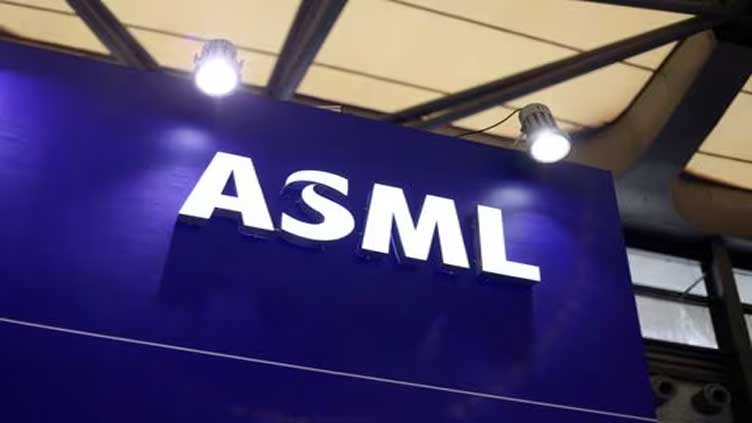China seeks military advantage from ASML tools

Technology
China seeks military advantage from ASML tools
AMSTERDAM (Reuters) - Fears that ASML's (ASML.AS) computer chip equipment will be used for Chinese military ends underlie recent decisions to deny the company export licences, the Dutch trade minister said in answers to questions from parliament.
Netherlands-based ASML, Europe's largest tech firm, dominates the world market for lithography systems, needed by computer chip makers to help create circuitry.
"China focuses on foreign expertise, including Dutch expertise in the field of lithography, to promote self-sufficiency in its military-technical development," Trade Minister Geoffrey van Leeuwen wrote in a Feb. 5 note, seen by Reuters.
Van Leeuwen said that ASML tools are used to make advanced semiconductors that can go into "high-value weapons systems and weapons of mass destruction" and the Dutch government focuses on "the risk of undesirable end use" when reviewing export licensing decisions.
Under pressure from the United States, the Dutch government last year introduced a licensing requirement for ASML's mid-range DUV machines.
The company's most advanced tools have never been sold in China.
The questions posed by lawmaker Femke Zeedijk of the reformist NSC party asked why the government initially granted, then quickly retracted, a license for ASML to export several tools to undisclosed customers in China. The company has sold hundreds of millions of euros worth of such tools to Chinese customers in recent years.
Van Leeuwen's answers dodged that question, adding that "several licences for the export to China of advanced semiconductor equipment have been granted" since the licensing requirement was introduced in September, and it anticipates around 20 such requests this year.
That is in line with forecasts by industry group SEMI, which says around 18 Chinese chip plants will come online this year, more than in any other geographical region.
Some of Zeedijk's questions, such as whether the Netherlands had revoked the licenses at the request of the U.S. government, went unanswered.
"I'm not saying that there are no security issues or that this decision was wrong, but I would like to be better informed," Zeedijk told Reuters on Monday.
"The perception is also that besides the security risk, there are also economic reasons behind it."
ASML confirmed on New Year's Day the Dutch government had revoked a licence, following a report by Bloomberg News.
The resulting cancellations did not impact ASML's fourth-quarter earnings, but the Deep Ultraviolet (DUV) tools in question cost approximately $60 million each and would be an important part of customer plans.


